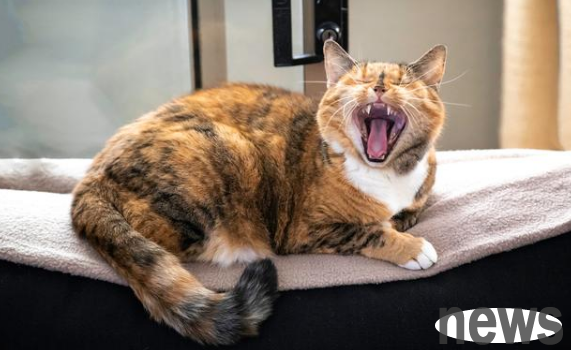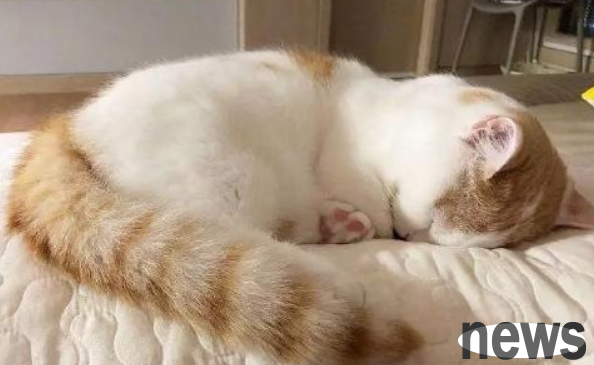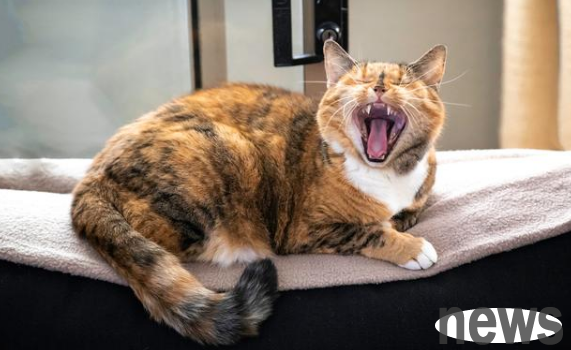If cats frequently experience these behaviors, it means health problems occur
Cat keepers should pay attention. Cats do not express their ideas, and cats are good at hiding their illnesses, so many cat diseases are hidden in their behavior. The following types: If your cat often appears, then you should pay attention!

1. Frequent ear scratching - ear mites
If you notice your cat's frequent ear scratching, this may be a sign of ear mites infection. Ear mites are small insects that parasitize cats' ear canals and can cause intense itching and discomfort.
In order to relieve this discomfort, cats will constantly scratch their ears with their claws and even rub their heads against furniture or the floor.
In addition to scratching the ear, ear mites infection can also cause black or brown waxy secretions inside the ears, which may be accompanied by a odor. Long-term untreated ear mites infection can cause inflammation of the ear canal and even cause hearing loss.
Therefore, if you find that cats are frequently scratching their ears, it is recommended to take them for examination immediately so that they can be tested and appropriate treatment.
2. Hen squat - stomachache
Hen squat is a common position when cats have abdominal pain. The cat will arch its back and its abdomen are close to the ground, looking like a hen is hatching eggs.
This position is usually a sign of abdominal discomfort or pain in the cat, which may be caused by indigestion, gastroenteritis, constipation, bloating and even more serious digestive disorders.
When cats suffer from abdominal pain, they may also show symptoms such as loss of appetite, vomiting, diarrhea or constipation.
3. Bad breath - stomatitis
The oral health of cats has an important impact on their overall health. If you notice that your cat has obvious bad breath, this may be a sign of oral inflammation.
Stomatitis is a common oral problem in cats, mainly manifested as red and swollen gums, ulcers and intraoral pain. There are many reasons for stomatitis, including accumulation of plaque and tartars, oral infections, immune system problems, etc.
Stomatitis not only causes bad breath, but also causes cats to have difficulty eating, drooling and abnormal behavior. Long-term untreated stomatitis may develop into more serious oral diseases, and may even affect the cat's overall health.
4. Gastric and coughing - respiratory problems
If a cat wheezes or coughs frequently, this may be a sign of respiratory problems. Respiratory diseases in cats include upper respiratory tract infections, bronchitis, asthma and pneumonia.
These diseases may be caused by bacteria, viruses, allergens or parasites. Gasp and cough are often accompanied by other symptoms such as runny nose, sneezing, decreased appetite and loss of energy.
If respiratory problems are not treated in time, they may lead to serious complications and may even be life-threatening.
5. Frequent butt grinding - Parasite
Cats frequently rub their butts on the ground, usually due to itching and discomfort caused by anal or intestinal parasites. Common parasites include tapeworms, roundworms and hookworms, which breed in the cat's intestines, resulting in indigestion, weight loss and anal itching.
In order to relieve this discomfort, cats will rub their butts to relieve itching. In addition to grinding your butt, parasitic infections can also cause diarrhea, vomiting and loss of appetite.
Regular deworming treatment is an effective way to prevent parasite infections.

In short, raising cats requires multiple care. The above situation occasionally causes unlucky things. If they occur frequently, it means that the cat's health has already had problems.




